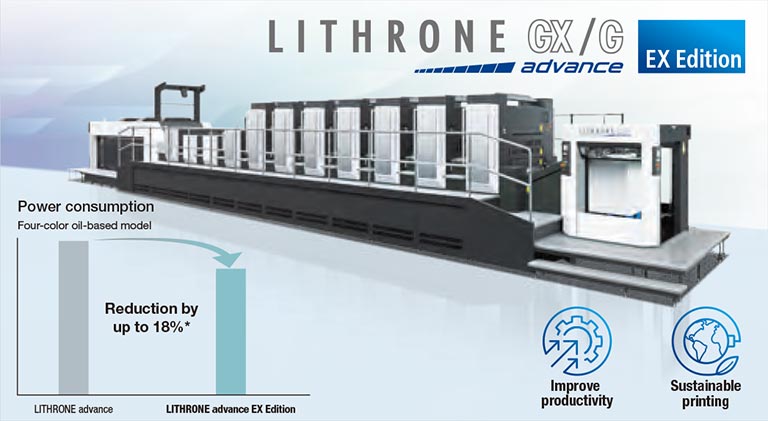Environment
Eco factories
In pursuit of environmentally friendly production and facilities, the company continues to focus on reducing energy use, energy management, waste reduction, and circulation of resources.
Adoption of solar power generation equipment
At the Tsukuba Plant, a large-scale 500kW solar power generator was installed on the rooftop, and the electricity generated in the fiscal year ended March 31, 2024, at 567,000kWh was fully used in the plant, equivalent to a reduction of 248.5t-CO2*. Group company MBO, a manufacturer of post presses for the postprinting process, added on facilities to their plant in Germany in 2022 for output of 117kW, and installed facilities in the Portugal Plant in 2023 for output of 590kW, and is consuming electricity in-house and selling the electricity as well. In-house consumption was 472,000kWh, equivalent to a reduction of 206.6t-CO2*.
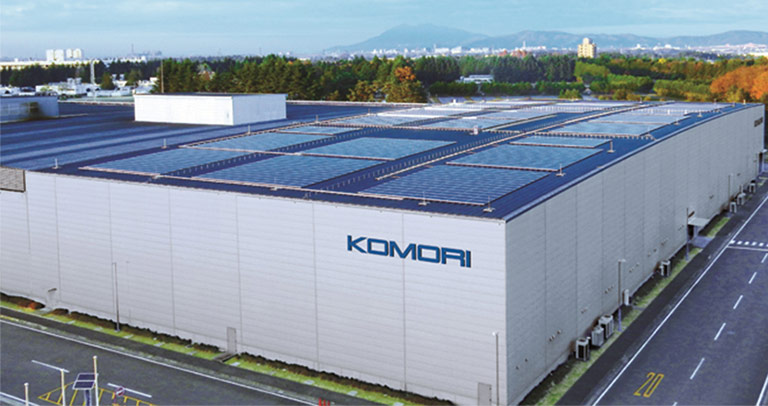
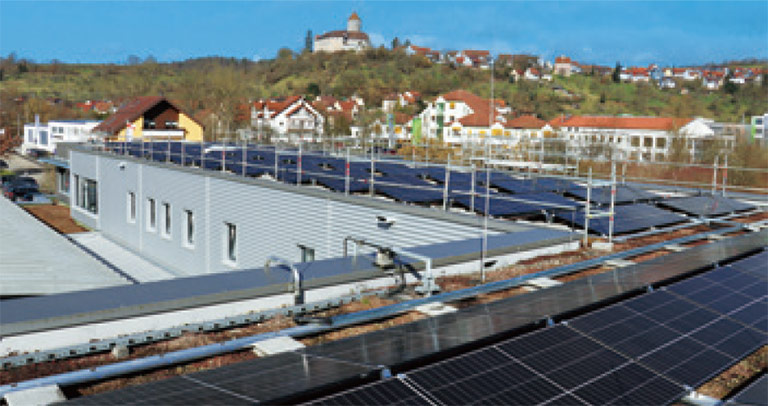
*FY2023 national average emission factor for calculating greenhouse gas emissions
LED lighting installed
At the Tsukuba Plant, ceiling lighting, crane lighting, office and plant fluorescent lighting have all been changed to LED in the fiscal year ended March 31, 2023, and CO2 emissions were reduced by roughly 250t-CO2* in the fiscal year ended March 31, 2024. Lighting on all floors of the headquarters building was switched to LED in the fiscal year ended March 31, 2023, and group companies are also working to change lighting to LED.
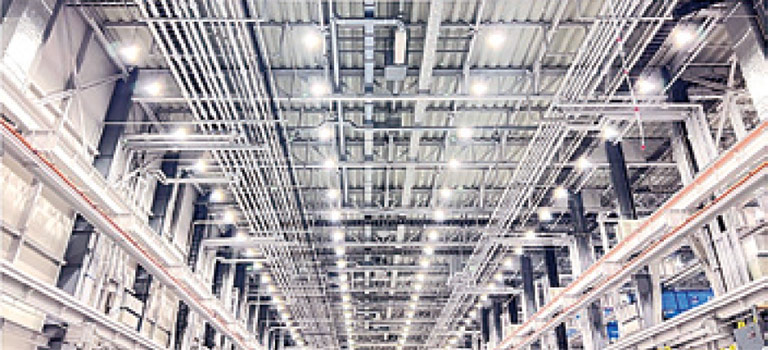
*FY2023 national average emission factor for calculating greenhouse gas emissions
Upgrade of heat source equipment for energy-efficient air conditioners
In December 2018, the plant upgraded the air-cooled heat pump chiller used for some of its air conditioning system to the model certified by the Ministry of the Environment as the most energy efficient. Compared to before, the Tsukuba Plant's total gas consumption decreased by approximately 35% and water consumption during summer also decreased by about a third. CO2 emissions decrease by approximately 500 tons as a result.
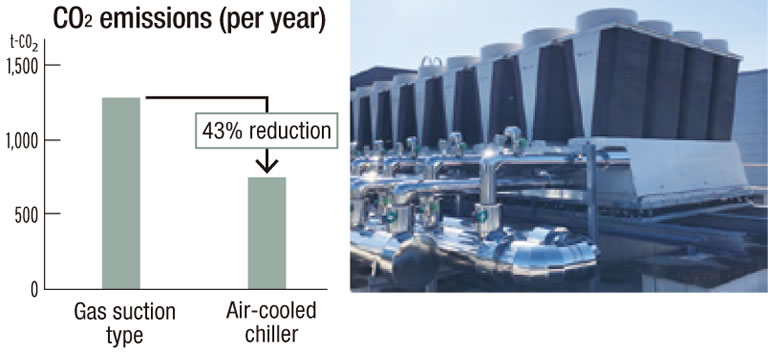
Eco products
In pursuit of environmentally friendly product development, we are continuing our activities to reduce environmental impact and CO2 emissions throughout the lifecycle of our products, from procurement of raw materials and components to manufacturing and product use.
Development of environment-friendly products
LITHRONE GX/G advance EX Edition
Escalating energy costs is a major factor suppressing the profit of printing companies. Thus, as a solution offered to support printing companies, Komori introduced in April 2024 an eco-friendly offset printing press designed to reduce greenhouse gas (GHG) emissions.
Development of environment-friendly elemental technologies
Three essential developments achieve sustainable printing
Komori is focused on the development of environmentallyfriendly elemental technologies. By means of three ecoconscious functions, the LITHRONE GX/G advance EX Edition reduces power consumption by 18%* while printing and realizes stable feeder and delivery operation for less wastepaper usage, thus both achieving reduced GHG emissions and high productivity.
*Effect of Smart Inking Flow and DC blower together
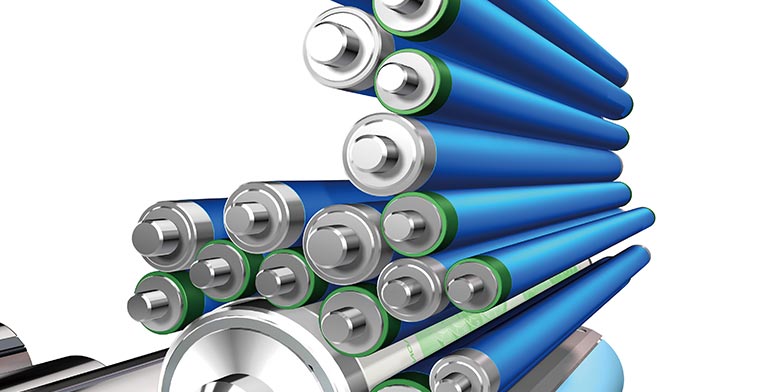
Smart Inking Flow
An optimized roller arrangement backed by state-of-the-art analysis. It ensures enhanced print quality through stable density control. It also reduces exhaust heat and energy consumption by alleviating the load of the rotary drive.
1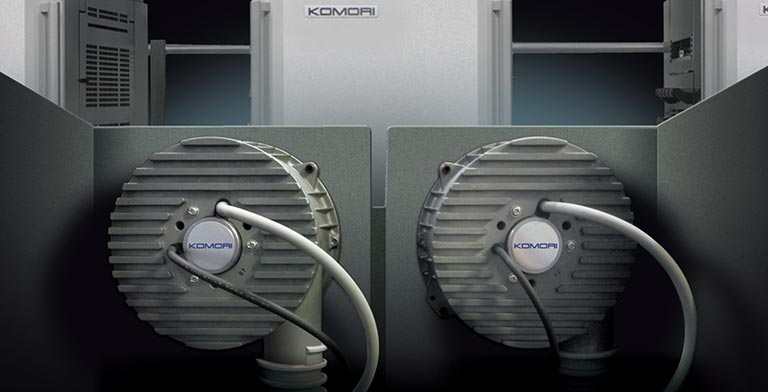
DC blower
Komori's DC blower achieves both economic and environmentally-friendly operation while maintaining the highlevel airflow needed to properly stabilize the sheet, all in a compact and lightweight design. It significantly reduces power consumption through low-energy operation and zminimal heat generation.
2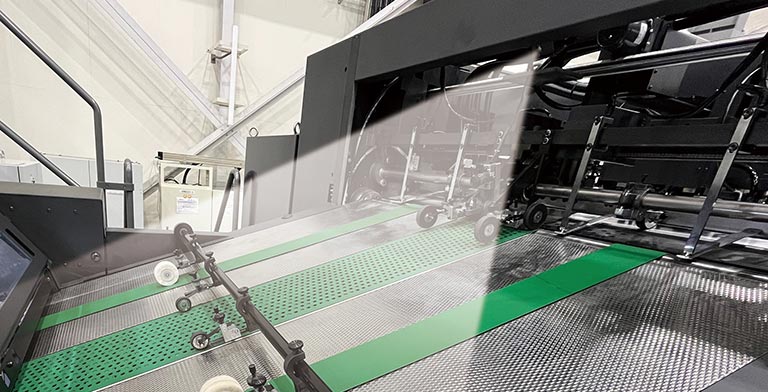
e-Mist
Komori's revolutionary micro-mist system directly controls the humidity of the paper to combat the effects of static electricity. Paper is completely humidified to enhance sheet alignment during delivery. By controlling the humidification time, power consumption and water usage, the system keeps energy usage to a minimum.
3Eco communication
The company continues to promote proactive information disclosure as part of its environmentally friendly corporate activities as well as activities aimed at increasing corporate value.
Disclosure based on TCFD recommendations

Komori supports the Task Force on Climate-related Financial Disclosures (TCFD)recommendation to proactively disclose items related to climate change-related risks and opportunities, and we are tackling the following initiatives:
Governance
Komori's basic environmental policy and material issues including climate change countermeasures are reported and discussed in the CSR Committee. The CSR Committee is headed by President and Representative Director and consists of all Directors and Operating Officers, with meetings scheduled to be held four times annually. Its resolutions are presented and reported to the Board of Directors as necessary and reflected in the Group strategies.
Risk management
The Risk Management Committee has been established as an organization subordinate to the CSR Committee and undertakes initiatives in collaboration with other divisions. In identifying and evaluating risks, those involving all aspects of the business environment including climate-related items are extracted, and the frequency of occurrence and impact of those risks are then evaluated. The progress of the activities are discussed by the Risk Management Committee, with particularly important risks being reported to and discussed by the CSR Committee and the Board of Directors.
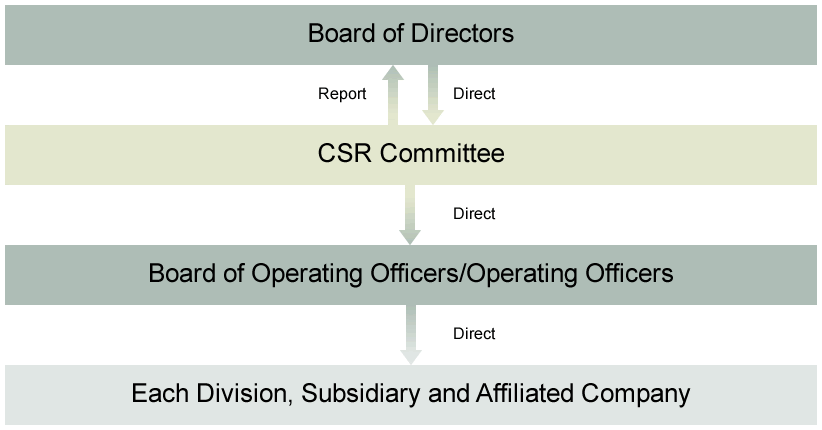
Strategy
To consider the impact of climate change on business, scenario analysis was conducted, taking into account climate-related scenarios released by external organizations such as the International Energy Association (IEA) and the Intergovernmental Panel on Climate Change (IPCC). The analysis makes evaluations based on quantitative and qualitative aspects of impact of climate change as of 2030 as stipulated in Komori Eco Vision 2030.
Note: A PDF version of the table below is available here.
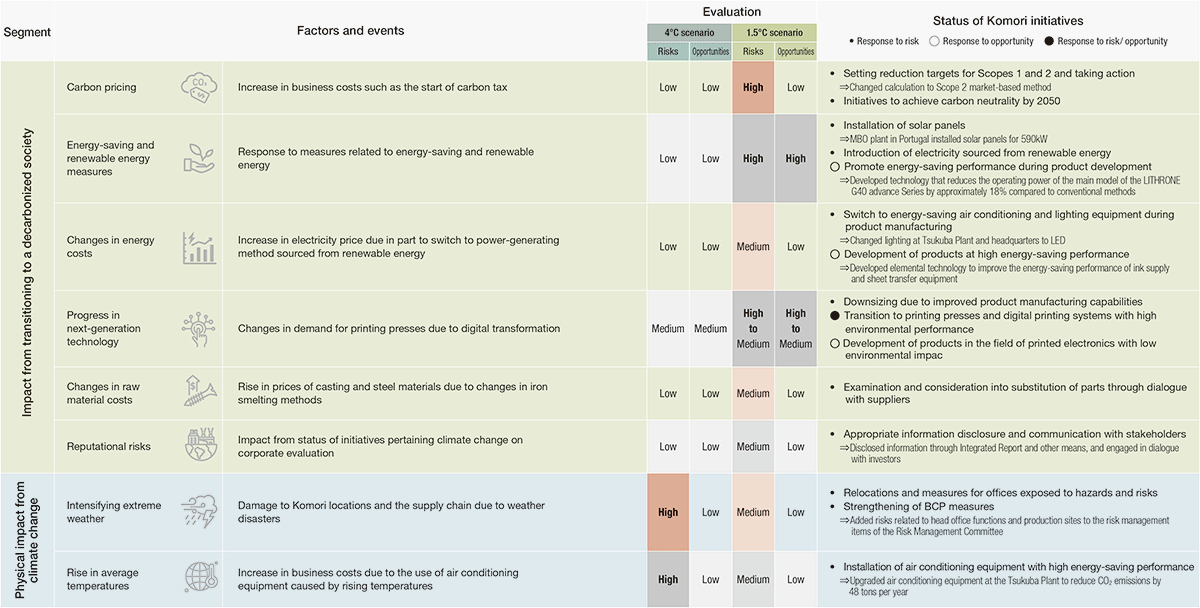
The above table can be viewed in its entirety by scrolling horizontally.
Click here for a PDF version.
Evaluation Indicators
- Quantitative evaluations have been performed with the following criteria on items that (potentially) impacted operating income performance in the fiscal year ended March 31, 2022:
⇒ High: 5% or more, Medium: More than 1% - under 5%, Low: Under 1% - Impact on which quantitative evaluations are not performed is evaluated based on qualitative study, and qualitative evaluation is indicated with gray coloring.
Indicators and targets
The company has been promoted activities to reduce CO2 emissions, such as setting a climate change target of a 50% reduction in total company CO2 emissions by March 2031 compared to March 2011, with an interim target of a 30% reduction by March 2021, in "Komori Eco Vision 2030" formulated in 2015. From March 2023, the calculation method was changed to use Scope 2 as the market standard in line with the trend towards standardization of greenhouse gas emission calculation methods, and the "Komori Eco Vision" was revised to achieve carbon neutrality by 2050. Scope 1+2 greenhouse gas emissions are targeted to be reduced by 26% by March 2031, with FY2023 as the base year.
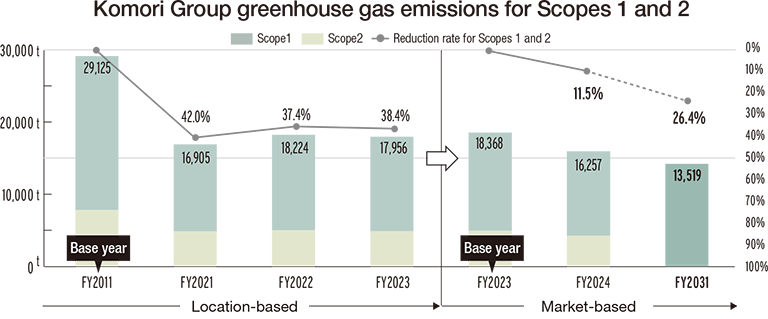
CDP
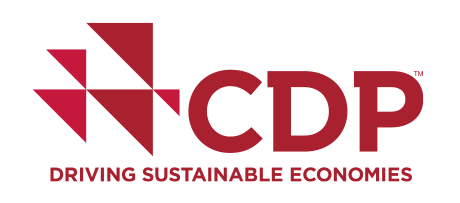
Komori has been answering the CDP questionnaire, a UK-based non-profit organization, since 2022. Our CDP Climate Change score for 2024 was a "B."





